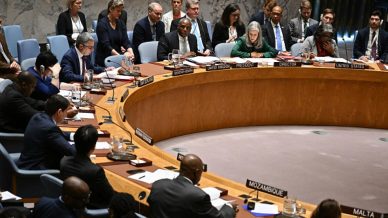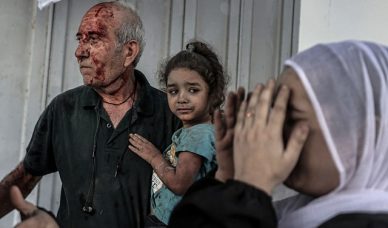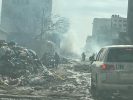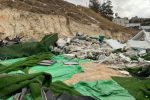GAZA, (PIC)
The United Nations Relief and Works Agency for Palestinian Refugees (UNRWA) warned on Saturday of the worsening levels of hunger in the besieged Gaza Strip, amid an increase in cases of starvation-related deaths in the region.
The agency’s Commissioner-General, Philippe Lazzarini, expressed concern during a press conference about the spread of hunger, unprecedented in Gaza, emphasizing that all residents of the enclave are experiencing despair, hunger, and panic.
He mentioned that residents are stopping aid trucks and immediately consuming the food, indicating their desperation and hunger.
Lazzarini expressed alarm at what he called “smear campaigns” targeting Palestinians and those assisting them, considering UNRWA as one of the targets of the Israeli war on the besieged Strip.
He condemned the “constantly increasing levels of inhumanity” and the lack of global compassion towards the plight of Gaza’s inhabitants.
In recent days, activists reported the deaths of children due to starvation in northern Gaza, and a UN official stated on Friday that half of Gaza’s population is suffering from hunger.
The entry of aid trucks into Gaza from the Rafah crossing is controlled by Israeli authorities, subjecting them to inspection in Israel before entry. Meanwhile, thousands of tons of humanitarian aid accumulate on the Egyptian side of the Rafah crossing.
Gaza requires 1,000 trucks daily for supplies and aid, including infant formula, relief and ration supplies, basic goods for markets, medical equipment, and rescue and civil defense vehicles, according to the Gaza government’s media office.
Popular Anger Towards International Institutions
Popular anger against international institutions is escalating in the Palestinian street, evident in public discourse, media interviews, and social media in occupied Palestine.
At the beginning of the war on Gaza, Palestinian factions accused UNRWA of “colluding” in the Israeli project to “displace the residents of northern Gaza” by restricting the entry of humanitarian aid except to the southern areas.
The Red Cross received the largest share of “anger” in the Palestinian street, accused of failing to fulfill its role in monitoring the crimes committed by the Israeli army and not making efforts to assist displaced people, patients, and the wounded subjected to massacres.
In the early days of the war, activists documented the withdrawal of a convoy carrying Red Cross and international institutions’ employees from areas in Gaza following threats by the Israeli army. This move was widely criticized by a significant portion of the Palestinian people in Gaza, leaving them to face the “war of starvation,” destruction of the medical sector, house bombings, and civilian killings in the streets.
After the “temporary ceasefire,” the Ministry of Health reported the death of five malnourished children at Al-Nasr Hospital, left alone after the hospital was surrounded by Israeli occupation forces. Activists accused the International Red Cross of ignoring pleas to rescue the children, whose gruesome images were shared on social media after their bodies decomposed. Despite the organization’s justifications, the anger continued, with activists asserting that the Red Cross’s statement “does not justify the crime committed against the malnourished children.”
The Ministry of Health, which has continuously appealed to international human rights institutions to provide medicine and medical supplies to Gaza hospitals, protect them from the Israeli aggression, and evacuate the wounded, announced weeks ago the suspension of coordination with several international institutions after the arrest of the director of Al-Shifa Medical Complex, Mohammed Abu Salmiyah from inside an ambulance that was part of a convoy organized by international institutions to the south of the sector, without these institutions taking the initiative to provide an explanation for what happened.
In all areas of Gaza subjected to the blockade by the Israeli army, with civilians killed and the invasion of schools for displaced people, residents say that their appeals to the Red Cross to rescue them from imminent death of hundreds of civilians were in vain. Meanwhile, the organization continues to defend itself, stating that it “cannot force Israel to allow its teams to reach these areas.”
Comparisons between the treatment of representatives of the organization with released Israeli captives during the “temporary truce” and with Palestinian prisoners subjected to a brutal suppression campaign since October 7th gained the limelight on social media.















